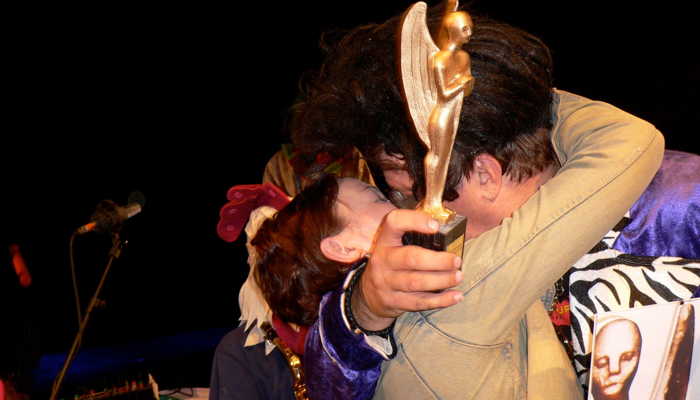Nod Knowles was Head of Music at the SAC after Matthew Rooke and was in post from 1998 - 2005.
In this interview Nod discusses:
- How Scottish Arts Council (SAC) had become independent of Arts Council of Great Britain in the mid- 90s, and how that new independence was changed further by the devolution vote in 1997. So the cultural climate was changing, culture - except for media and broadcasting - was a devolved power AND an area where the new devolved government had real interest.
- How when he took over Traditional music was still only receiving funding via a Combined Arts budget and a small amount from the music budget, despite being very high quality and at the absolute centre of the musical identity of the country.
- How the muusic budget was still tied up with National Bodies and the status quo, of which well above 95% went to “classical" music, but how new Lottery money allowed new ideas to be tried and lanched - albeit within the "everyone and all art forms apply for the same pot with outcomes defined by access and public impact" culture that was the future for arts funding.
- How he "had the best of it" because while he was Head of Music, all the Heads of Artforms formed the bulk of senior management at SAC and so sat at the top table, had their own seperate budgets and were given a reasonable amount of of free reign to be strategic and fulfil a leadership role albeit within a set of clear constraints and targets.
- How he knew he was perceived as a “jazzer” initially and had to work to show that he was interested in all musical forms - which he was - and interested in "equity of opportunity' with a philosophy of "it's all music".
- How the Traditional scene had good leadership and moved from having various factions to recognising that a) they had a common interest in working together and b) that attacking classical music or opera for their funding levels wasn't a productive strategy.
- How the theory of what he wanted to do (ie of "equity of opportunity" ) and actually delivering it in practice were 2 very different things. So shifting the balance of where funding went had to be a slow process- starting with directing more towards Traditional music.
Nod cited as achievements he was proud of:
- Adding in rock/pop/indie as musical genrse that deserved to receive state funding.
- Setting up the What's Going Audit with Youth Music and the MU and it's role in stimulating the YMI. He also fills in some interesting stories on how the YMI was rolled out.
- Setting up Showcase Scotland - based on his experience of running similar events at the Bath Festival.
- Creating and runninhg the Tune-Up touring scheme
Areas of frustration for him were:
• How the jazz scene didn't have the same quality of leadership and many people tended to work in isolation.
• How at the end of his tenure he called a meeting of the Jazz sector which later became the SJF and the reasons why Jazz found it difficult to organise as a sector following the model of the Traditional Music Forum.
• He talked about the way funding organisations in the UK have gone - including SAC/Creative Scotland since he left - and how the trends in funding haven't been positive wrt 1) a move from specialism to generalism within funding bodies 2) the loss of Artforms having their own budgets and 3) How artform specialists are no longer in the top tier of management and 4) How funding agencies have retreated from a leadership role wrt looking at the needs of seperate artforms and genres - "we don't give out grants we receive applications", 5) How funding agencies have become less "arms length" and more prone to making knee-jerk reactions to the latest political directives 6) How the emphasis on spending more on grants than admin has made it harder for funders to spend time out in the field engaging with their sector.
• He talked about the justification for merging all the separate art form budgets being the accusation that art form departments were in "silos" and competing with each other - whereas he felt they worked better with their own budgets and strategies but also that the different art forms during his tenure worked well together in a collegiate way sharing their expertise.
Nod, like Matt, described his 7 years at the SAC as "one of the best times in my entire life" and talked several times on how the English Arts funding sector failed to learn lessons from pioneering work in Scotland.
